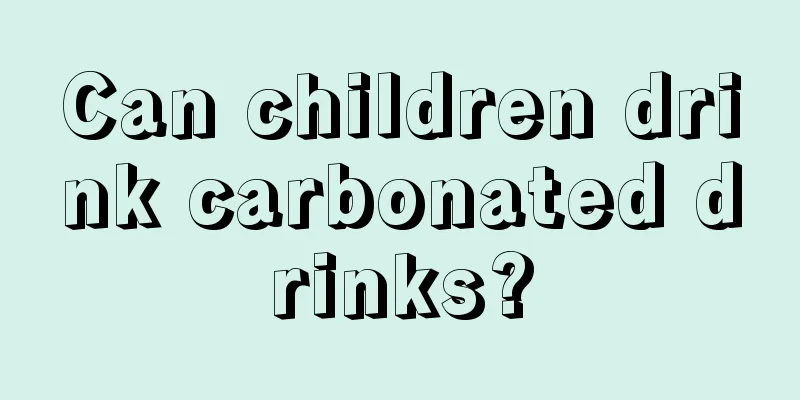What to do if your baby snores and holds his breath while sleeping

|
Some babies snore when they sleep, and many parents think that this is a sign that their child is sleeping soundly. However, some experts say that a child's snoring does not mean that he sleeps soundly, and some may even affect the baby's health and development. In fact, in real life, babies like to snore when they sleep, and sometimes they even hold their breath. At this time, mothers need to pay attention. Let’s take a clear look at it below. Mingming is a "little fat boy" over 3 years old. He not only eats well but also sleeps well. The only small problem he has is that he likes to snore when he sleeps. At first, his mother thought that snoring was not a big problem. But recently, the mother found that Mingming not only had heavy breathing when sleeping, but also sometimes held his breath. He tossed and turned all night and could not sleep well. He was not in good spirits during the day and his appetite was worse than before. So she took the child to the hospital. When a person is sleeping, all the muscles in the body are in a relaxed state and the breathing is even and quiet. Sleep can allow the body and mind to rest and the person can feel refreshed when waking up the next day. Snoring while sleeping is often regarded as a symbol of "sounding sleep". In the outpatient clinic, we can also see some parents coming to consult about the problem of their children snoring while sleeping. So, does snoring really mean that their children are sleeping soundly? Should my baby’s snoring be treated? First, let’s understand why some people snore when they sleep. When a normal person sleeps, the airway is open, and air can flow smoothly through the airway, producing an even, steady, and quiet breathing sound. People who snore have poor ventilation due to the collapse of the upper airway when they sleep at night. When the air flows through the narrow part, it causes vibration and produces the snoring sound we hear. Some people may wonder: Why don't people who snore snore when they are awake during the day? This is because when people are awake during the day, the muscles in the throat contract compensatorily, which can keep the airway open temporarily without blocking it. But at night, this neuromuscular compensation disappears and the upper airway cannot be maintained open, so snoring occurs. When the airway narrows more and more severely, or even becomes completely blocked, it may lead to respiratory arrest, which is medically known as obstructive sleep apnea syndrome. Sleep apnea syndrome is a common sleep breathing disorder. Its typical feature is repeated breathing interruptions accompanied by snoring. When the interruption exceeds 10 seconds (5 seconds for children), it is considered as respiratory arrest. If this respiratory pause occurs frequently, the gas entering the lungs will be reduced. Once lack of oxygen occurs, it will affect the blood oxygen level, resulting in symptoms such as shortness of breath, cyanosis, irritability, and in severe cases, respiratory arrest may even occur. The original complete sleep structure is disrupted and turned into sleep fragments. Children's sleep quality is greatly reduced because they cannot get sufficient deep sleep. They often still feel not fully rested after getting up in the morning and easily feel sleepy during the day. Once the sleep quality of children who are in the growth and development period is affected, it will inevitably affect the secretion of growth hormone and affect normal growth and development. If children do not sleep well, they will also suffer from memory loss, loss of appetite, and even abnormal shyness, developmental delay, hyperactivity, rebelliousness and even aggressive behavior and other personality disorders. In addition, children who snore when they sleep often affect the development of their nasal cavity and face due to mouth breathing, such as "glandular face" such as collapsed nose bridge, high cheekbones, protruding teeth, and everted lips. Some long-term illnesses may also induce cardiovascular and cerebrovascular diseases, such as hypertension, coronary heart disease, cerebral stroke, arrhythmia, angina pectoris, heart failure, etc. So, do all children who snore need to be treated? Whether a child's snoring needs treatment depends first on whether the child snores for a long time, such as whether he snores all night and whether he snores frequently. If the child only snores within the first hour of falling asleep and does not affect the child's deep sleep, you can temporarily not treat it. In addition, some children with enlarged tonsils and glands often snore. If the enlargement is not too serious, these organs will gradually atrophy after the age of 10, and the snoring of the child will gradually disappear. Secondly, you need to see if the child has respiratory arrest when snoring, or if he wakes up due to suffocation. If so, you must go to the hospital for treatment in time. Again, observe whether the child has the phenomenon of mouth breathing. After the child falls asleep, if parents find that the child opens his mouth, or the child always feels dry mouth and thirsty after waking up, it also indirectly indicates that the child has the phenomenon of mouth breathing when sleeping at night. If the child has mouth breathing, he needs to seek medical attention in time. Finally, the editor reminds you that snoring may seem like sleep on the surface, but it is actually just an illusion. There are still many health risks hidden behind it, so parents need to pay attention to it. In daily life, if you find that your child is easily sleepy after getting up and is always listless, it means that snoring has affected the child's sleep quality at night and will indirectly affect the child's physical and intellectual development, so it should be treated. |
<<: What should I do if my child has a fever for three consecutive days?
>>: What foods are good for children's spleen and stomach?
Recommend
Newborn baby's bulging belly
In life, many children have bulging bellies. Most...
Treatment of zinc deficiency in one and a half week old babies
Recently, many children have shown symptoms of zi...
Why do I always get oral ulcers in my mouth?
Many people have experienced oral ulcers, which c...
How much sleep should a two-year-old baby get?
A two-year-old baby has already learned to talk a...
What are the symptoms of enlarged tonsils in children?
Young children's immunity is relatively imper...
Why do children use dipyridamole?
The life expectancy of ancient people was much sh...
Symptoms of intellectual disability in a three-year-old
A person's IQ is partly determined at birth, ...
What to do if baby has fat particles on face
As we all know, the skin of a newborn baby is alw...
The reason why children have white spots on their fingers
In fact, the situation of white spots on children...
Birthmarks on baby
Babies are the little angels of every family. If ...
Why does my baby always wake up when sleeping?
People who become mothers for the first time prob...
What are the symptoms of high muscle tension in newborns?
The health status of newborns is the most concern...
What causes stomach pain and vomiting in children?
In fact, stomach pain and vomiting may occur in e...
What to do if your baby vomits during breastfeeding
Sometimes, during the breastfeeding period, impro...
The child's eyes suddenly became swollen
People should know that baby's swollen eyes i...









